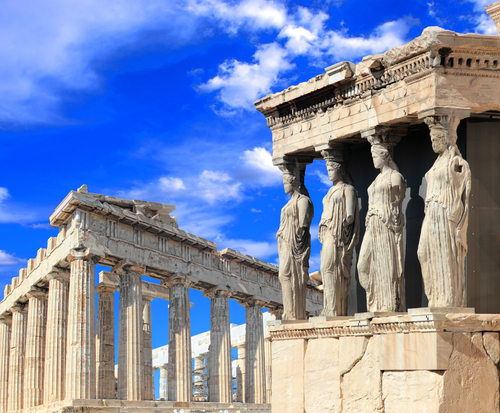
It's not access to capital that matters...
We’re going to fail miserably. How on earth are we going to scale up our operations abroad? The banks are actually closed and we have no access to our capital. The national economy is dead and our only way out was the Middle East market penetration; we’re dead Christos.
It was Monday morning, June the 29th and that was the first thing I heard when I entered my office door. The day before, the Greek government had announced capital controls “for a few days only.” Business and corporate life wasn’t the same any more in Greece. Since then, we’re learning to do business with limited access to capital and making continuously rapid adaptations to our plans and operations.
The probe
It was a recent relaxed conversation I had with my team on a Friday afternoon that made me to rethink on the scarcity of capital. The conversation was about comparison; it was a 'before – after' conversation. Some years ago our firm had a rather easy access to capital, but did we manage to create value back then?
During the last few quarters I have been observing the local and Middle East markets, our clients and our competitors, systematically, in an effort to orient my decisions and acts. I have also tried to empirically correlate the easiness to capital access with business success (value creation). I have come to understand that there isn’t any significant correlation. I have rather found a vice-versa causation; easiness to capital access is an effect of value creation, not a cause.
The conservation of value

Our government on the other hand, tries to deal with a continuous 7-year recession period and has set a goal: to haircut or reengineer the public debt. The challenge is there, but I’m not so sure that there is any strategy at all to support it. Government’s underpinning logic is that the total country-risk will be reduced, the country will become more attractive to investors, the cost of debt will also be reduced, and there will be more 'freedom' to allocate excess capital. The logic seems well intended and maybe the debt haircut is a necessary condition to turn around the country, but is it a sufficient one?
I can recall a small talk I had about eight years ago, when a high-ranked government official in the ministry of public works, was explaining to me that "the government’s cost of capital was near to zero" and so all the projects initiated at the time were creating value for the country. Not a surprise why our country has reached the current point.

It is everywhere the same; whether we are dealing with a firm or with a government, the easiness to capital access and the low cost of capital cannot create value. Today, globally, the capital is not scarce any more, and some of our international competitors have much easier access to low cost capital than our firm, but they do not have a competitive advantage. They do not have a competitive advantage in transportation design per se; they only have access to cheap money.
Greece is ranked 81 out of 140 in the global competitiveness report. ECB’s new money alone cannot generate sustainable growth and jobs in Greece. The same way companies create value and prosper, in the same way governments have to design policies that drive competitiveness up. If we become a more competitive economy, investors will come and jobs will be created.

The decisions have to be taken on the opportunity cost of capital, and not on the cost of capital.
As we say in Race “first deepening, then widening” or “ROIC comes first, Growth comes second.”
It's not access to capital that matters;
it's competition that matters!
Christos Rados is an executive leader in the professional engineering services industry. He is an entrepreneur, ambitious giver, designer, engineer, programmer, scrum fun, and value creation lover. He has abductive reasoning and synthetic intelligence.
Tags: charles darwin, capital access